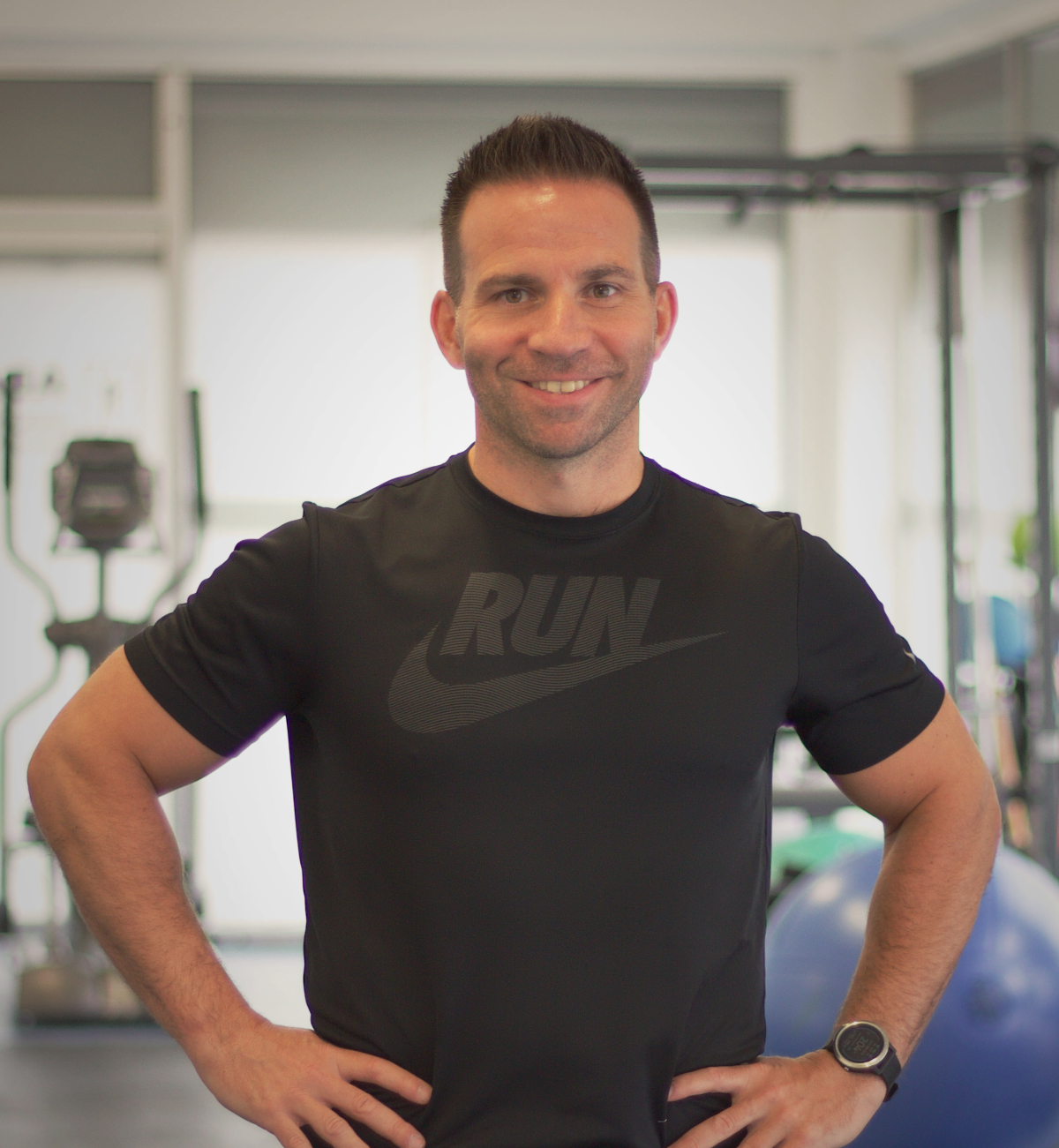Let me be very straight with you from the start. This way of thinking I totally understand, on a deep, personal level. I have always been an all or nothing, black and white thinker. I have literally been to the gym before, after having a long tiring week and decided while warming up I felt especially tired, got off the treadmill, got changed and come home again. After all, if I haven’t got full energy, what’s the point of doing half a workout, right?
The Reason the ‘All or Nothing’ Mind-Set Doesn’t Always Work
This way of thinking can often hurt us as much as it can help us. Our ‘all’ way of thinking can result in us often creating goals that are unrealistic. I had a client that while I was on holiday, promised herself that she would train 5 times in the week that I was absent. Considering that usually she would normally only see me once a week, I suggested before I went she plan to go just once, to maintain the habit with any additional sessions being a bonus but no, she was adamant. When I returned she had only gone once and felt like she had failed herself.
The Problem With Perfection
The problem with the all or nothing mind-set is that while when you are in ‘all mode’ and striving to do your best at something, the other end of ‘all’ is in fact nothing. If you do nothing you will get nothing and I don’t know anybody who is in ‘all’ mode all of the time.
The second problem; It’s often a perfectionist way of thinking which accompanies the ‘all’ mind-set. This means if it’s ‘all’ it has to be perfect. No room for errors or mistakes. Let’s be perfectly honest with ourselves, shall we… We are not perfect and we make mistakes. It’s human nature and actually we learn better from our mistakes than from our successes. However, the biggest mistakes are the ones we often don’t learn from which, in this mind-set, can be common. You can see again why this ‘all or nothing’ approach often ends up on the road to failure for so many people.
Based on these simple truths, it becomes clear to see we spend a lot of our time doing absolutely nothing and the time we do invest into our goals has to be so perfect that when we wobble we inevitably give up, feel like a failure and feel worse than when we started. The all or nothing mind-setters are also prone to enjoying starting things as opposed to people who like to complete and finish. Funny that!
What Causes the ‘All or Nothing’ Mind-Set?
The challenge with the mind-set of achieving a personal goal perfectly every time is that it takes a huge amount of courage, willpower and perseverance. When we are faced with a big challenge of some sort, it’s natural to consider what happens if we fail. Some people with this mind-set cannot even contemplate the idea of personal failure and so the challenge gets left there – As a mere thought and, therefore, ‘nothing’ is the outcome.
Things Worth Thinking About
Putting yourself in a situation where you are either going to achieve perfection or nothing at all creates a huge amount of pressure. It’s incredibly stressful to not be moving forward at all, especially when you have clear goals and, likewise, it’s incredibly stressful to be working toward those goals flat out at 100 miles an hour all the time… Constantly in fear of failure.
Stress has a negative effect on our bodies. It affects the way you sleep, your energy, your concentration and your motivation. These factors are not ideal when we are trying to achieve something great.
Change Your Thinking to the ‘Something is Better Than Nothing’ Mind-Set
Firstly, you have to realise there are valid steps between ‘all’ and ‘nothing’. In Neuro-Linguistic Programming (NLP) we call this ‘Chunking’; For example – I had a client once struggle with her healthy eating plan. She couldn’t stick to her committed meal plans and instead was binging on all the wrong things all the time. I asked her to think of a single blade of grass and to tell me the next thing up in size… She replied “A football pitch”. She went from small blade of grass to a massive football pitch in one step. This is called ‘Big Chunk Thinking’.
Chunking
I then challenged my client to do it again in ten steps. The idea was for her to begin to think differently and to learn to fill in the blanks between the two which essentially is to ‘Chunk Down’ from the football pitch idea. Eventually, we ‘Chunked Up’ from going from a blade of grass, to a window box of grass, some turf, a patch of grass, a small bed of grass, a small garden, stately home grounds, a small park, open woodland, a small meadow, then on to a full size football pitch.
Grass had nothing to do with her initial goals, of course, but the exercise challenges the mind to learn to give you options where normally you may feel you have none. We did the exercise again with ten steps between a drop of water and the ocean and she found 4 steps – Better than the grass example now her brain had become more aware of ‘Chunking’.
Now her mind was in this mode, I challenged her to do the same again with her goals – Eating healthy or eating rubbish all the time. For the first time, she was able to see options in between the two and immediately felt better for having a new and more sustainable plan to help her lose weight.
Are Small Goals Better Than Big Ones?
So we have learned to ‘Chunk Down’ and focus on achieving small things first. Is that better? Well, of course, on paper a big goal is much more impressive than a small one. After all, it’s bigger!
The truth is, in order to achieve your goals we are not just dealing with the ‘doing’ that’s involved in achieving something – Such as, going to the gym a few times a week. We are dealing with something much deeper… Facing your fears, changing your thinking, learning to set small goals and, most importantly, learning to stay consistent with your new behaviours. All are the key to long-term success.
No Such Thing as Failure
The final point is how you manage failure. Some may see it as a reason to quit, others may see it as a learning experience to improve upon and, therefore, not as a failure at all.
The truth is, you are allowed a little treat while on your healthy eating plan, you don’t have to workout everyday and it’s ok to come away from your plan for a while if you need to. As long as you have small achievable goals you are consistently working towards and achieving, you are essentially still moving forward successfully.
Planning is Key
Be smart with your planning and plan to encounter problems. Create a solution ahead of them happening so when you do wobble it’s all part of the plan. For example; You may plan to exercise four times a week, working different body parts as part of a split routine, then find you have to work overtime and can only manage twice. Your legs, Abs, Chest shoulders, triceps, back and biceps workouts are now out of sync as two have been compromised.
The all or nothing thinker will see this as a ‘bad week’ and a failure… “I haven’t completed my programme and I am missing my arm workout this week” you may hear them cry. The simple solution here could be to train abs and legs one day and upper body the second day – It is a change to your routine and not what you promised yourself but will work around the problem.
Find a way to get yourself back to your routines, if your schedule becomes challenged, and keep your objectives small and consistent. Remember, as long as you are doing something, you will have far more success than doing absolutely nothing at all.



Hi Danny
You are absolutely right in your blog (All or Nothing) I can be like that myself but also I am a serial Quitter
and at the moment I am very disappointed in myself for not sticking to a healthy way of life and I know I am the only one who can change this, though your blogs are definitely an incentive and very informative. once again you have inspired me to think about my future
Thank you Danny
Hi Jeanne, Thank you for your kind comments. I am pleased that my blog is helping to inspire you. I noticed you mentioned being a serial quitter, if you haven’t already seen, I have covered this subject in a previous post. Please feel free to have a look, you might find it useful. The link for that particular post is here: http://wp.me/p599Os-7v I hope you get your motivation back soon and start feeling better about yourself.
Danny.